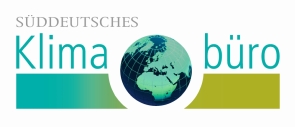German
Federal Ministries:
At the Federal Environment Agency (UBA) of the Federal Ministry for the Environment, Nature Conservation and Nuclear Safety (BMU), the Competence Center on Climate Impacts and Adaptation (KomPass) is located, which investigates climate impacts and develops the German adaptation strategy. In December 2008, the German government adopted the German Adaptation Strategy to Climate Change (DAS).
The Federal Ministry of Education and Research (BMBF) has issued the High-Tech Strategy for Climate Protection. The BMBF funding measure "klimazwei - Research for Climate Protection and Protection against Climate Impacts" of the framework program "Research for Sustainability" (FONA) serves the development of practical action strategies. The regional competition KLIMZUG supports regions in adapting to climate change.
The Federal Ministry of Transport, Building and Urban Development (BMVBS), together with its specialized agencies:
- the Federal Maritime and Hydrographic Agency (BSH) in Hamburg and Rostock
- the Federal Institute of Hydrology (BfG) in Koblenz
- the Federal Waterways Engineering and Research Institute (BAW) in Karlsruhe
- and the German Meteorological Service (DWD) in Offenbach am Main
has launched the departmental research program KLIWAS, which addresses climate impact research related to inland and maritime navigation and the development of adaptation strategies.
The Climate Service Center (CSC) was established in 2009 through a joint initiative of the BMBF together with the UBA (KomPass) and the DWD as part of the German High-Tech Strategy. It was set up at the GKSS Research Center in Geesthacht and offers a new information and advisory platform for politicians, decision-makers, and investors, with a focus on national-level advice.
Leibniz Association (WGL)
The Leibniz Institute for Marine Sciences (IFM-GEOMAR) at the Christian-Albrechts University of Kiel addresses all major areas of modern marine research and is a leader in the study of ocean circulation and climate dynamics.
The Potsdam Institute for Climate Impact Research (PIK) investigates the impacts of climate change from both natural and social science perspectives.
Max Planck Society (MPG)
The Max Planck Institute for Meteorology (MPI-M) in Hamburg.
Cross-cutting German Institutions:
The Models and Data Group (M&D) at MPI-M provides central support to climate researchers in Germany and Europe in Earth system modeling and data management. Closely associated is the German Climate Computing Center (DKRZ), which provides supercomputers and support for Earth system and climate modeling (e.g., with the global climate model ECHAM-5). The shareholders of DKRZ are MPG, Hamburg, AWI, and GKSS.
The ClimateCampus in Hamburg (see also CliSAP) was established in 2007 as part of the federal Excellence Initiative as a competence and training center for climate research and Earth system sciences. This further strengthened the networking of the University of Hamburg, GKSS, MPI-M, and partners, which were previously connected in the Center for Marine and Atmospheric Sciences (ZMAW).
The German Climate Consortium (DKK) is an association of universities and major research institutions, through which scientific expertise on climate in Germany is pooled and which serves as a voice and platform for integrative research projects on climate change, climate impacts, and climate protection.

